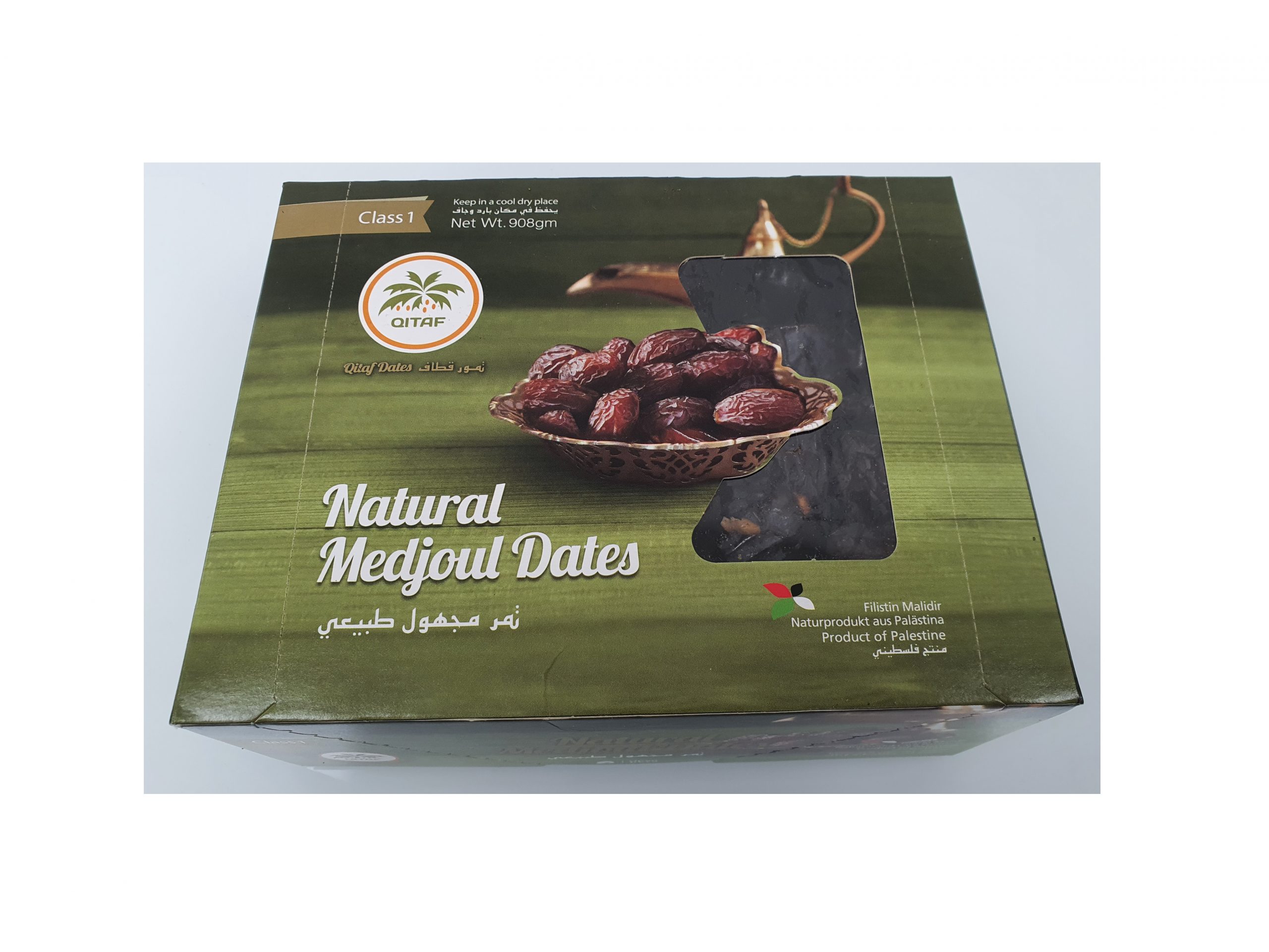Description
Medjool dates come from the Middle East and North African regions, playing an incredibly important role in the cultures of this diverse area of the world. They are the world’s oldest cultivated fruit, and people have been growing them for at least 6,000 years.
May protect your heart
The fibre and antioxidants in Medjoul dates may help protect your heart.
Fibre can help lower your LDL (bad) cholesterol and keep your arteries clean, reducing your risk of heart disease. Just 2 dates (48 grams) contains over 3 grams of fibre
Medjoul dates are also a rich source of antioxidants, which help fight damage caused by unstable molecules called free radicals. Their carotenoid and phenolic acid antioxidants have both been studied for their beneficial effects on heart health.
Supports healthy digestion
Fibre is essential to promoting healthy digestion and bowel regularity. In fact, sufficient fibre in your daily diet helps form stool and prevent constipation.
Eating enough fibre may also reduce your risk of digestive diseases like colorectal cancer.
High in antioxidants
Medjoul dates boast several antioxidants, which can protect your cells from oxidative damage that can lead to diseases like cancer, heart disease, and brain ailments.
Those in Medjoul dates include flavonoids, carotenoids, and phenolic acids, which have been studied for their anti-inflammatory, anticancer, and brain-protective properties.
One study in dried fruit found that dates had the highest antioxidant content when compared with figs and prunes.
Other potential health benefits
- Natural fuel for your body. Medjoul dates offer a high number of carbohydrates in a small serving. Carbohydrates are your body’s main source of energy.
- May support bone health. Medjoul dates contain a small amount of calcium and are a decent source of potassium, manganese, and copper, all of which are important nutrients for bone health.
- May protect brain health. Animal studies link dates’ antioxidants to lower levels of inflammatory markers and reduced brain plaques associated with conditions like Alzheimer’s disease.






Reviews
There are no reviews yet.